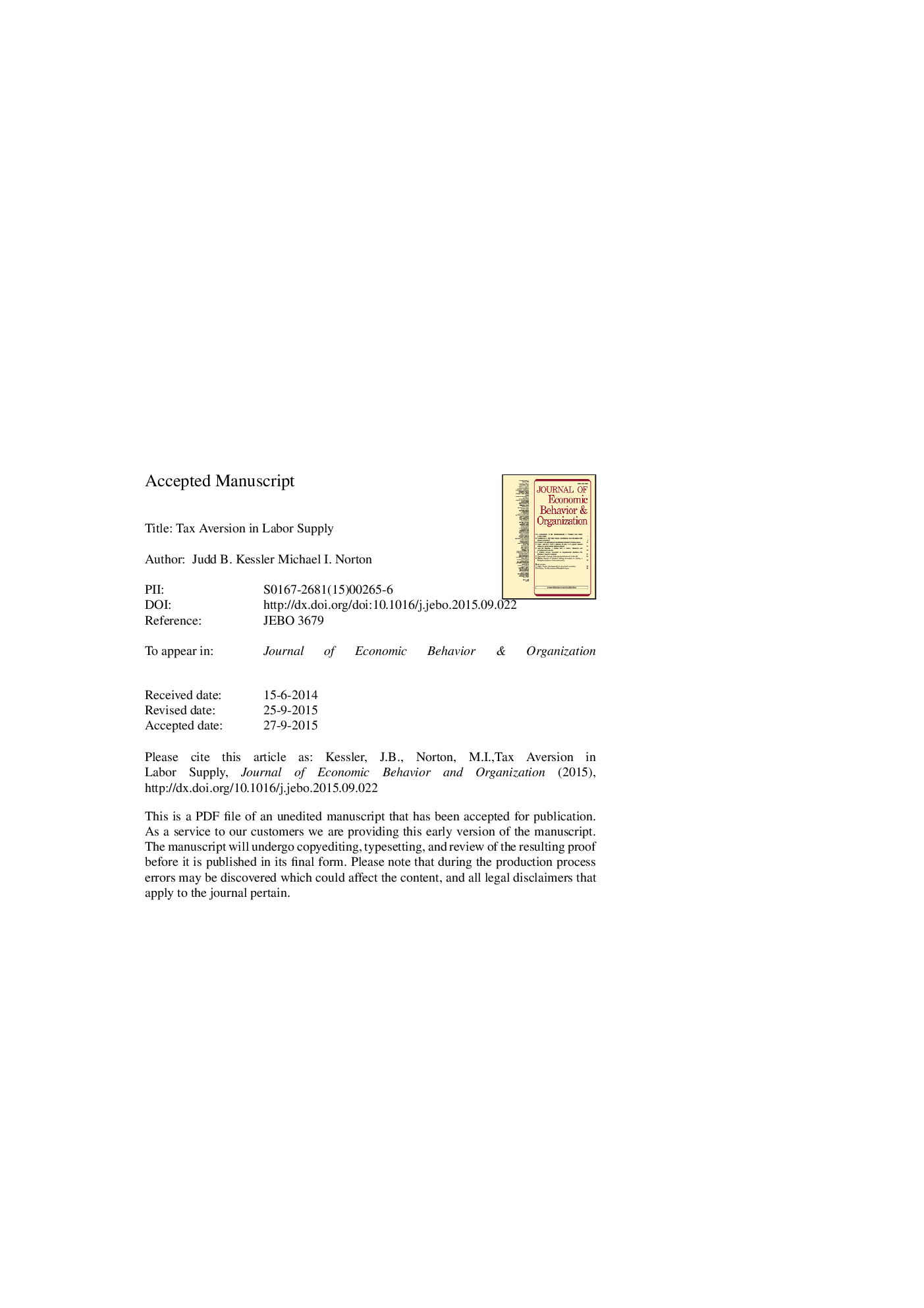| Article ID | Journal | Published Year | Pages | File Type |
|---|---|---|---|---|
| 7242841 | Journal of Economic Behavior & Organization | 2016 | 36 Pages |
Abstract
In a real-effort laboratory experiment, labor supply decreases more with the introduction of a tax than with a financially equivalent drop in wages. This “tax aversion” is large in magnitude: when we decompose the productivity decrease that arises from taxation, we estimate that 40% is due to the lower net wage and the remaining 60% to tax aversion. This tax aversion affects labor supply more on the extensive margin (working less) than on the intensive margin (being less productive while working). The aversion is equally strong whether tax revenue goes to the U.S. government or back to the experimenter (a “laboratory tax”). We discuss the implications of our results for the relationship between labor supply and taxation.
Related Topics
Social Sciences and Humanities
Economics, Econometrics and Finance
Economics and Econometrics
Authors
Judd B. Kessler, Michael I. Norton,
